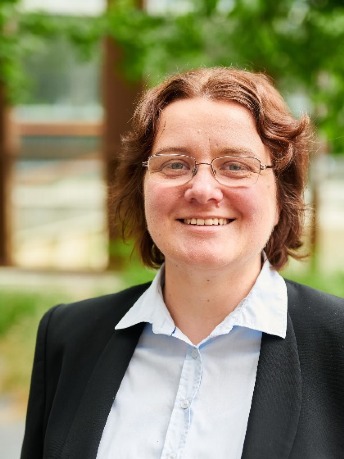Elisabeth Wilhelm partner in consortium dat app ontwikkelt voor type 2 diabetes patiënten

Dr. Elisabeth Wilhelm van de Faculty of Science and Engineering (RUG) is partner in een consortium dat een EFRO-subsidie van 1,2 miljoen euro ontvangt voor het ontwikkelen van een app om diabetespatiënten te begeleiden naar een medicijnvrij leven. Wilhelm gaat werken aan de wetenschappelijke validatie van alle stadia van de ontwikkeling van de app en aan de ontwikkeling van algoritmen die in de applicatie worden geïmplementeerd.
Het project wordt gecoördineerd door Diavantis, een Nederlands bedrijf dat zich richt op het ondersteunen van mensen met type 2 diabetes. Elastique Health uit Emmen is ook partner in het project.
Betrouwbare app
De app combineert AI en IoT-technologie om real-time gezondheidsdata te analyseren en gepersonaliseerde begeleiding te bieden op het gebied van o.a. voeding, beweging, stress en slaap. ‘Een app voor gezondheidsgerelateerde leefstijlinterventies moet betrouwbaar en robuust zijn’, aldus Wilhelm. ‘Om de app te kunnen ontwikkelen moeten we verschillende wetenschappelijke uitdagingen oplossen zoals real-time analyse van incomplete gegevens met machine learning.’
Eigen regie
Boudewijn Baks (CEO van Diavantis) legt uit dat de explosieve groei van Type 2 Diabetes een enorme druk legt op de gezondheidszorg: ‘Met deze app helpen we mensen controle en meer verantwoordelijkheid te nemen voor hun eigen gezondheid. Dat is niet alleen goed voor de patiënt, maar ook cruciaal om de gezondheidszorg betaalbaar en vooral de eerstelijnszorg toegankelijk te houden.’
Over de EFRO subsidie
EFRO staat voor “Europees Fonds voor Regionale Ontwikkeling”. Het doel van dit programma is het stimuleren van innovatie en ondersteuning bij de overgang naar een koolstofarme economie, om tegelijkertijd de belangrijkste economische verschillen tussen regio’s te verminderen.
Lees meer
Meer nieuws
-
17 februari 2026
De lange zoektocht naar nieuwe fysica
-
10 februari 2026
Waarom slechts een klein aantal planeten geschikt is voor leven
